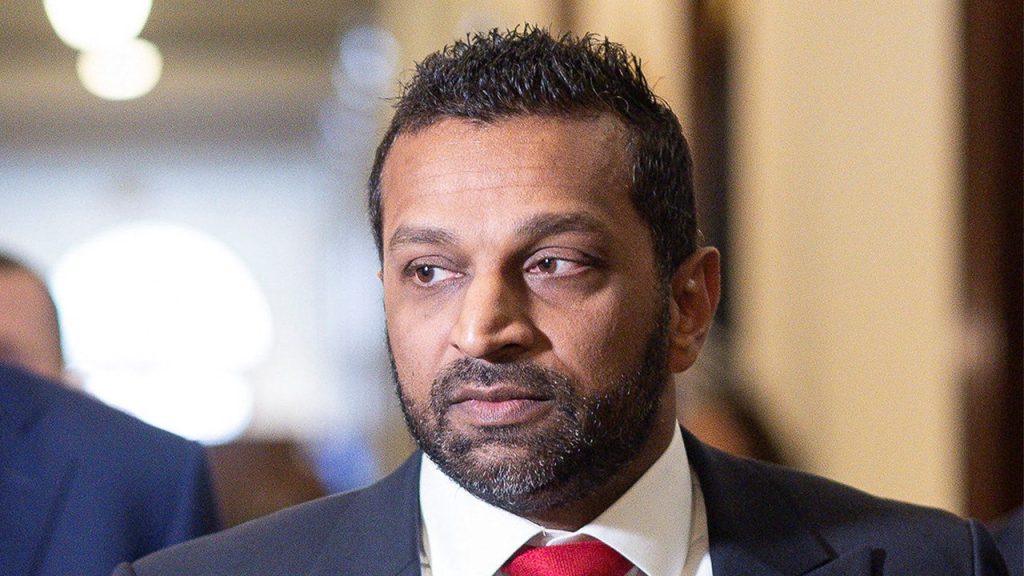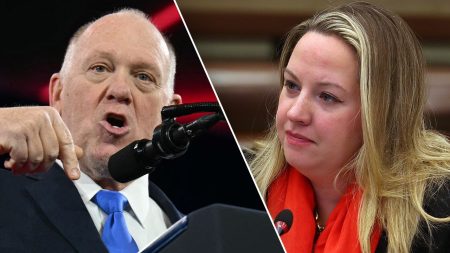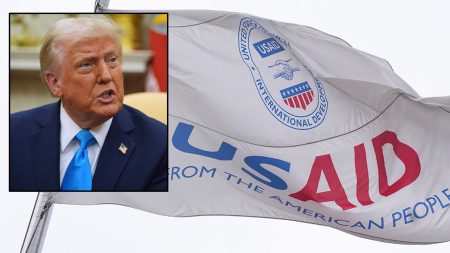Kash Patel, President-elect Trump’s nominee for FBI Director, has garnered significant support from Republican state attorneys general, signaling a contentious confirmation battle ahead. Twenty-four attorneys general, representing a broad swathe of states, penned a letter to incoming Senate Republican leader John Thune and Senate Majority Leader Chuck Schumer, emphatically endorsing Patel’s qualifications and leadership potential. The letter casts Patel as a much-needed reformer, capable of restoring public trust in the FBI after what they describe as years of scandal and politically motivated investigations targeting President Trump. This backing from prominent law enforcement officials in numerous states adds considerable weight to Patel’s candidacy and sets the stage for a clash with Senate Democrats, who are likely to scrutinize Patel’s past involvement in politically charged investigations.
The attorneys general argue that the FBI has strayed from its core mission under current leadership, becoming unduly focused on investigating President Trump rather than addressing critical domestic threats. They express a deep concern about the erosion of public confidence in the bureau and present Patel as the individual best equipped to rectify this perceived decline. Their letter emphasizes their experience in overseeing state justice departments and collaborating with federal law enforcement agencies, highlighting their understanding of the FBI’s vital role in upholding the rule of law. This concerted effort by a substantial bloc of state attorneys general underscores the importance they place on the selection of the FBI director and their strong belief in Patel’s suitability for the position.
The timing of the letter, arriving shortly before FBI Director Christopher Wray’s announced resignation, adds another layer of complexity to the unfolding leadership transition. Wray’s decision to step down at the end of President Biden’s term creates an immediate opening for President-elect Trump to install his chosen candidate. This confluence of events – the endorsements from state attorneys general, Wray’s impending departure, and Patel’s active engagement with senators – intensifies the focus on the upcoming confirmation process. The Senate will be tasked with swiftly vetting and confirming a new director, and Patel’s supporters aim to capitalize on this momentum to secure his appointment.
Patel’s nomination is almost certain to face intense scrutiny from Senate Democrats, who may raise concerns about his past involvement in investigations related to the Trump administration. These potential points of contention could include his role in the investigation into Russian interference in the 2016 election and his work on issues related to the origins of the COVID-19 pandemic. Democrats are likely to question his objectivity and independence, given his close ties to President Trump. This anticipated opposition foreshadows a potentially difficult path to confirmation, with Patel needing to secure bipartisan support to ascend to the FBI’s top post.
The Republican attorneys general preemptively address potential criticism in their letter, characterizing Patel as a “smart, competent reformer” who can restore the FBI’s integrity and focus. They portray him as a champion of the hardworking investigators within the bureau, contrasting him with what they view as failed leadership. This proactive defense suggests an awareness of the challenges Patel’s nomination will encounter and a strategic effort to frame the narrative in his favor. The letter serves as a public declaration of support, designed to bolster Patel’s credentials and counter anticipated Democratic opposition.
The coming weeks will be crucial in determining the future of the FBI’s leadership. Patel’s supporters are actively working to secure his confirmation, highlighting his experience and portraying him as a change agent. His detractors, however, are likely to scrutinize his background and question his impartiality. The Senate confirmation process will be a pivotal test of Patel’s ability to garner the necessary support and navigate the political landscape. The outcome will have significant implications for the direction of the FBI under the Trump administration and the agency’s relationship with both Congress and the public.










